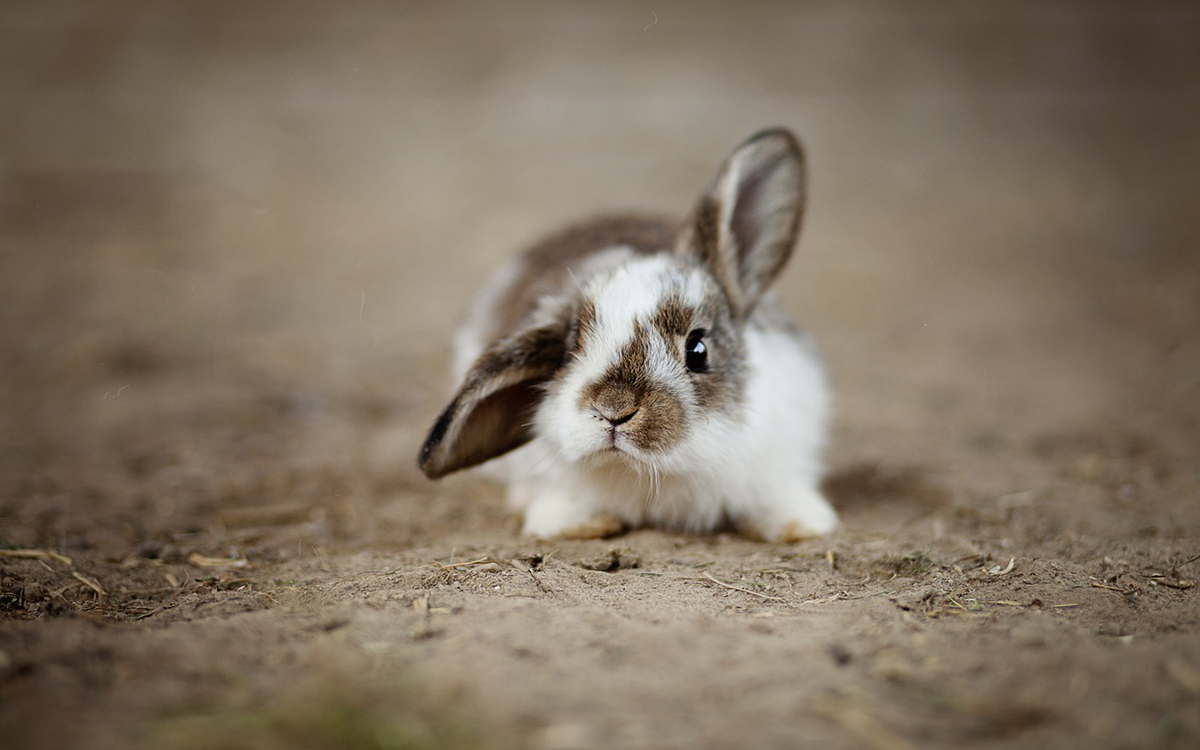Rabbits are adorable, curious, and full of personality—but they’re also prey animals. In the wild, showing weakness can attract predators, so pet rabbits instinctively hide their illnesses until they’re very sick. This makes it especially important for rabbit parents to know the subtle signs they have a sick bunny, and to act quickly.
The following is a guide to recognizing when your bunny might be under the weather and what to do about it.

Why Rabbits Hide Illness
Unlike dogs or cats, rabbits don’t usually yelp, whine, or meow when something hurts. Instead, they become quieter, less active, or hide away. Because of this survival instinct, a rabbit that looks sick may already be in serious danger.
This is why regular observation is key—you know your bunny’s normal behavior better than anyone else. Even small changes can signal trouble.
Key Signs That Your Rabbit Is Sick
- Changes in Appetite
- Emergency red flag: If your rabbit stops eating hay, pellets, or fresh greens—even for 12 hours—it could indicate GI stasis (a life-threatening digestive shutdown).
- Look for: Dropping food, chewing oddly, or refusing treats they normally love.
- Changes in Poop
Healthy rabbit poop should be:
- Round, firm, and consistent in size.
- Produced regularly throughout the day.
Warning signs:
- Smaller, fewer, or misshapen droppings.
- Stringy droppings with hair inside.
- Runny or mushy stools.
No poop at all = medical emergency.
- Rabbit Lethargy and Behavior Changes
A normally playful bunny that suddenly hides, seems weak, or avoids interaction may be in pain. Watch for:
- Sitting in a hunched position.
- Not wanting to hop around.
- Sudden aggression or flinching.
- Teeth Grinding (Pain vs. Contentment)
- Gentle tooth purring = relaxation.
- Loud, harsh grinding = pain.
- Eye and Nose Discharge
- Watery or crusty eyes.
- Constant sneezing or runny nose.
- Could signal respiratory infections or dental issues (overgrown teeth pressing on tear ducts).
- Breathing Problems
Any of these are serious:
- Fast, shallow breathing.
- Noisy wheezing.
- Flared nostrils or open-mouth breathing.
- Drooling or Wet Chin
This often means dental problems. Rabbits’ teeth grow continuously and can cause pain or difficulty eating if not worn down properly.
- Coat and Skin Changes
- Bald patches or sores.
- Dull, rough coat.
- Excessive scratching (could be mites or allergies).
- Head Tilt or Balance Issues
Known as “wry neck,” this may be caused by ear infections, parasites, or neurological conditions. It always needs immediate veterinary care.
- Changes in Urine
- Blood in urine.
- Straining to pee.
- Urinating outside the litter box when normally trained.

What To Do If You Suspect You Have A Sick Bunny
- Call a rabbit-savvy veterinarian right away. Not all vets specialize in rabbits, so make sure you have one lined up before an emergency happens.
- Keep your bunny warm and comfortable. Sick rabbits often struggle to regulate body temperature.
- Do not delay. Waiting even a day can be life-threatening. Rabbits’ health can decline rapidly.
- Bring notes. Tell your vet about changes in eating, poop, behavior, or breathing. Even small details help.
Preventing Rabbit Illness
While not all sickness can be prevented, good care makes a big difference:
- Balanced diet: Unlimited hay, fresh greens, and limited pellets.
- Dental care: Chew toys and hay to wear down teeth.
- Clean environment: Fresh litter and daily cleaning reduce respiratory risks.
- Regular vet checkups: Annual exams (or more for seniors) help catch issues early.
- Observation: Spend time with your rabbit daily—you’ll spot unusual behaviors sooner.
Quick Reference: Signs That Your Rabbit Is Sick
Final Thoughts
Knowing the signs of a sick bunny could save your rabbit’s life. Trust your instincts—if something feels “off,” it probably is. Rabbits hide illness well, so even small changes in appetite, poop, or behavior should be taken seriously.
Your best tools as a rabbit parent? Observation, quick action, and a trusted rabbit-savvy vet.
